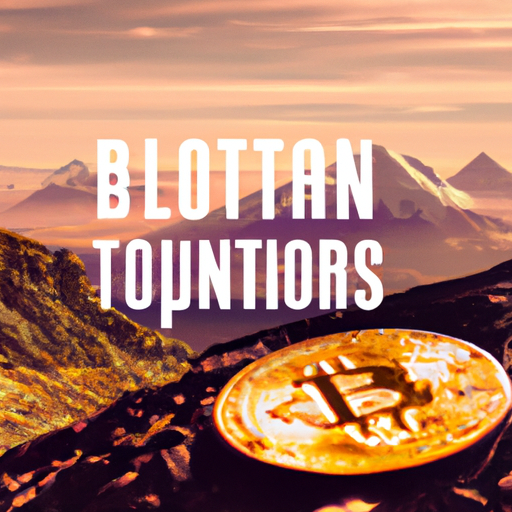- Understanding Altcoins: A Beginner’s Guide
- The Rise of Altcoins in the Cryptocurrency Market
- Exploring Different Types of Altcoins
- Investing in Altcoins: Opportunities and Risks
- Altcoins vs Bitcoin: A Comparative Analysis
- Future Outlook: The Potential of Altcoins
Understanding Altcoins: A Beginner’s Guide

Altcoins, or alternative cryptocurrencies, refer to any digital currency that is not Bitcoin. While Bitcoin remains the most well-known and widely used cryptocurrency, there are numerous altcoins that have gained popularity and recognition in the crypto market.
One of the most prominent altcoins is Ethereum. Launched in 2015, Ethereum is not just a digital currency but also a platform that enables the development of decentralized applications (DApps) and smart contracts. Its native currency, Ether (ETH), is used for transactions within the Ethereum network.
Ripple is another notable altcoin that has gained attention for its unique approach to digital payments. Unlike Bitcoin and Ethereum, which rely on blockchain technology, Ripple uses a different consensus mechanism called the Ripple Protocol Consensus Algorithm (RPCA). This enables faster and more efficient transactions, making it a popular choice for cross-border payments.
Litecoin, often referred to as the “silver to Bitcoin’s gold,” was created in 2011 by Charlie Lee, a former Google engineer. It shares many similarities with Bitcoin but offers faster transaction confirmation times and a different hashing algorithm. Litecoin has gained a loyal following and is often seen as a more accessible alternative to Bitcoin.
- Altcoins are digital currencies that are not Bitcoin.
- Ethereum is a platform for decentralized applications and smart contracts.
- Ripple utilizes a different consensus mechanism for faster transactions.
- Litecoin offers faster transaction confirmation times and is seen as a more accessible alternative to Bitcoin.
Altcoins provide investors and users with a diverse range of options beyond Bitcoin. They offer different features, use cases, and technological innovations that cater to specific needs and preferences. It’s important to research and understand each altcoin before investing or using them, as their value and functionality can vary significantly.
As the crypto market continues to evolve, new altcoins are constantly being introduced. It’s an exciting space to explore and discover innovative solutions that go beyond the traditional realm of finance.
The Rise of Altcoins in the Cryptocurrency Market

Altcoins, or alternative cryptocurrencies, have been gaining significant traction in the cryptocurrency market. While Bitcoin remains the dominant player, altcoins such as Ethereum, Ripple, and Litecoin have emerged as strong contenders. These altcoins offer unique features and advantages that differentiate them from Bitcoin and cater to specific needs within the market.
Ethereum, for instance, is not just a cryptocurrency but also a blockchain platform that enables developers to build and deploy decentralized applications (DApps). This flexibility has made Ethereum a favorite among developers and has contributed to its rapid rise in popularity. The platform also introduced the concept of smart contracts, which are self-executing contracts with predefined rules that can be automatically enforced.
Ripple, on the other hand, focuses on providing fast and low-cost international money transfers. Its blockchain technology, known as the RippleNet, enables secure and instant cross-border transactions. With its partnerships with major financial institutions, Ripple has positioned itself as a leading solution for efficient global remittance.
Litecoin, often referred to as the “silver to Bitcoin’s gold,” was one of the earliest altcoins. Created by Charlie Lee, a former Google engineer, Litecoin offers faster block generation times and a different hashing algorithm than Bitcoin. These features make Litecoin more suitable for everyday transactions and have garnered a loyal following.
As altcoins continue to gain momentum, they are expanding the possibilities and use cases of cryptocurrencies. Investors and traders are increasingly diversifying their portfolios and exploring opportunities beyond Bitcoin. While Bitcoin remains the most well-known and widely accepted cryptocurrency, altcoins like Ethereum, Ripple, and Litecoin are carving their own niches in the market and contributing to the overall growth and evolution of the cryptocurrency ecosystem.
Exploring Different Types of Altcoins

Altcoins are alternative cryptocurrencies to Bitcoin. While Bitcoin was the first and most well-known cryptocurrency, altcoins have gained popularity and offer different features and functionalities. There are various types of altcoins available in the market, each with its own unique characteristics.
Ethereum: Ethereum is one of the most prominent altcoins and has its own blockchain platform. It allows developers to build and deploy smart contracts and decentralized applications (DApps). The cryptocurrency used within the Ethereum network is called Ether (ETH). Ethereum’s flexibility and programmability have made it a popular choice for developers and businesses looking to create innovative blockchain solutions.
Ripple: Ripple is a digital payment protocol and cryptocurrency designed for fast, low-cost international money transfers. Unlike Bitcoin and Ethereum, Ripple does not rely on a blockchain. Instead, it uses a consensus algorithm to validate transactions, making it faster and more scalable. Ripple’s native cryptocurrency, XRP, is used as a bridge currency for facilitating transactions between different fiat currencies.
Litecoin: Litecoin is often referred to as the silver to Bitcoin’s gold. It was created by Charlie Lee, a former Google engineer, and is based on the Bitcoin protocol. Litecoin offers faster block generation times and a different hashing algorithm, making it more efficient for everyday transactions. While Bitcoin is often seen as a store of value, Litecoin aims to be a practical cryptocurrency for daily use.
These are just a few examples of the many altcoins available in the market. Each altcoin has its own unique features and use cases, catering to different needs and preferences. It’s important to research and understand the specific characteristics of each altcoin before considering an investment or using it for transactions.
Investing in Altcoins: Opportunities and Risks

Investing in altcoins can offer both opportunities and risks for investors. Altcoins, or alternative cryptocurrencies, refer to any digital currency other than Bitcoin. While Bitcoin is the most well-known and widely used cryptocurrency, there are thousands of altcoins available in the market.
One of the key altcoins to consider is Ethereum. Ethereum is a decentralized platform that enables the creation of smart contracts and decentralized applications (DApps). It has gained significant popularity and has a large developer community, making it an attractive investment option.
Ripple is another altcoin worth considering. Ripple aims to enable fast, low-cost international money transfers and has partnered with various financial institutions. Its technology, known as XRP Ledger, has gained attention from banks and payment providers, potentially offering a promising investment opportunity.
Litecoin, often referred to as the silver to Bitcoin’s gold, is another altcoin worth exploring. It was created with the goal of improving Bitcoin’s shortcomings, such as transaction speed and scalability. As a result, Litecoin has gained a loyal following and has established itself as one of the top cryptocurrencies.
When investing in altcoins, it is important to consider the risks involved. Altcoins can be more volatile and less established than Bitcoin. Their values can fluctuate significantly, and there is a higher risk of potential scams and fraudulent projects. It is essential to conduct thorough research and due diligence before investing in any altcoin.
- Market liquidity: Some altcoins may have lower trading volumes and liquidity compared to Bitcoin, which can impact buying and selling.
- Regulatory uncertainty: The regulatory landscape for altcoins is still evolving, and changes in regulations can affect the value and usage of altcoins.
- Competition: Altcoins face competition from other cryptocurrencies, including both established ones like Bitcoin and other emerging altcoins.
- Technological risks: Altcoins may face technical challenges or vulnerabilities that could impact their functionality and security.
Despite the risks, investing in altcoins can offer opportunities for diversification and potential higher returns. It is important to carefully assess the potential of each altcoin, considering factors such as the team behind it, its technology, use cases, and market demand.
In conclusion, altcoins such as Ethereum, Ripple, and Litecoin can provide investment opportunities beyond Bitcoin. However, it is crucial to be aware of the risks involved and conduct thorough research before investing in any altcoin. Diversifying one’s cryptocurrency portfolio and staying informed about the market can help navigate the dynamic world of altcoin investments.
Altcoins vs Bitcoin: A Comparative Analysis

When comparing altcoins to Bitcoin, it is important to consider their unique features and differences. Altcoins, which refers to alternative cryptocurrencies other than Bitcoin, have gained popularity in recent years. Some of the most well-known altcoins include Ethereum, Ripple, and Litecoin.
One key difference between altcoins and Bitcoin is the technology they are built on. While Bitcoin uses a blockchain technology, altcoins like Ethereum have their own unique blockchain platforms. Ethereum’s blockchain not only supports its native cryptocurrency, Ether, but also allows for the creation of smart contracts and decentralized applications.
Ripple, on the other hand, focuses on facilitating faster, low-cost international transactions. Its blockchain technology, known as the XRP Ledger, aims to enable seamless cross-border payments. Ripple’s native cryptocurrency, XRP, is used as a bridge currency for these transactions, making it a popular choice for banks and financial institutions.
Litecoin, often referred to as the silver to Bitcoin’s gold, was one of the earliest altcoins to emerge. It shares many similarities with Bitcoin, but boasts faster transaction confirmation times and a different hashing algorithm. This has led to Litecoin being seen as a more efficient alternative for everyday transactions.
When it comes to market value, Bitcoin still reigns supreme, with the highest market capitalization among all cryptocurrencies. However, altcoins like Ethereum, Ripple, and Litecoin have also seen significant growth in their market values over time.
Investors and enthusiasts often view altcoins as an opportunity to diversify their cryptocurrency portfolios. Each altcoin offers its own set of unique features and advantages, catering to different use cases and industries. However, it is crucial to conduct thorough research and analysis before investing in any altcoin, as their values can be highly volatile and subject to market fluctuations.
Future Outlook: The Potential of Altcoins

Altcoins, or alternative cryptocurrencies, have gained significant traction in recent years as investors look beyond Bitcoin for potential opportunities. While Bitcoin remains the most well-known and widely used cryptocurrency, altcoins offer unique features and functionalities that make them an attractive investment option.
One of the most prominent altcoins is Ethereum. Built on blockchain technology, Ethereum allows developers to create smart contracts and decentralized applications (DApps). This opens up a world of possibilities for businesses and individuals looking to leverage blockchain technology for various purposes, such as supply chain management, decentralized finance, and more.
Ripple is another altcoin that has garnered attention in the cryptocurrency market. Unlike Bitcoin and Ethereum, Ripple focuses on facilitating fast and low-cost international money transfers. Its blockchain-based platform, RippleNet, enables financial institutions to settle cross-border transactions quickly and efficiently.
Litecoin, often referred to as the “silver to Bitcoin’s gold,” is another altcoin worth mentioning. Created by Charlie Lee, a former Google engineer, Litecoin offers faster transaction confirmation times and a different hashing algorithm compared to Bitcoin. These features make Litecoin a preferable choice for those looking for quicker and more scalable transactions.
Overall, the future outlook for altcoins is promising. As cryptocurrencies continue to gain mainstream acceptance and adoption, altcoins like Ethereum, Ripple, and Litecoin are likely to play a significant role in shaping the digital economy. Their unique features and functionalities provide opportunities for innovation and disruption across various industries.
However, it is crucial to note that investing in altcoins comes with risks. The cryptocurrency market is highly volatile, and altcoins may experience significant price fluctuations. It is important for investors to conduct thorough research, evaluate the potential risks and rewards, and diversify their portfolios accordingly.

12 Replies to “Exploring Altcoins: Beyond Bitcoin”
I’ve been exploring altcoins for a while now and it’s fascinating to see the diverse range of options beyond Bitcoin. It’s allowed me to diversify my investment portfolio and I’ve had some great success with lesser-known altcoins. However, it’s also important to be cautious and do thorough research before diving into any new altcoin. I’d love to hear more about the potential risks involved in investing in altcoins.
As a beginner in the world of cryptocurrency, I found this article extremely helpful in understanding the concept of altcoins. Bitcoin may be the most well-known, but there are so many other options out there with unique features. I’m curious to know more about the best platforms for purchasing and trading altcoins, especially for someone new to the market.
I’ve been following the development of altcoins for a while now and the potential for growth in this space is truly exciting. It’s amazing to see the innovative technologies and use cases that different altcoins are bringing to the table. However, there’s also a lot of noise and speculation in the market. I’d like to see more discussion on how to identify promising altcoins and avoid the ones that are just hype.
I’ve had a few bad experiences with altcoins in the past, so I approach them with caution now. It’s crucial to do thorough research and understand the technology behind each altcoin before investing. I’d be interested in learning more about the potential regulatory challenges and legal implications associated with altcoin investments.
This article provides a great overview of altcoins and their potential. I’ve had some success with altcoin investments, but I’ve also encountered some unexpected challenges along the way. It would be helpful to dive deeper into the role of altcoins in the broader cryptocurrency ecosystem and how they may impact the future of digital finance.
I’ve been exploring altcoins for a while now and it’s fascinating to see how they’ve grown beyond Bitcoin. I’ve had some great success with altcoin investments, but it’s definitely a wild world out there. It would be great to see more in-depth analysis on the potential of specific altcoins and how they compare to Bitcoin in the long run.
As someone new to the world of cryptocurrency, I found this article to be really informative. I had heard of altcoins but didn’t fully understand how they differ from Bitcoin. It would be helpful to have more resources on how to safely and effectively invest in altcoins for those of us who are just starting out.
I’ve been burned by some altcoin investments in the past, so I’m a bit wary. It would be great to see some tips on how to avoid scams and identify legitimate altcoin opportunities. It’s definitely a jungle out there and I want to make sure I’m making informed decisions.
I’ve been following the rise of altcoins closely and it’s amazing to see the innovation in this space. However, with so many options, it can be overwhelming to know where to start. I’d love to see more content on how to research and evaluate different altcoins before making investment decisions.
I’ve dabbled in altcoin trading and it’s definitely a rollercoaster ride. It would be interesting to read about the potential impact of altcoins on the future of finance and how they could potentially disrupt traditional banking systems.
I’ve been a Bitcoin enthusiast for years, but I’m starting to see the potential of altcoins. It would be great to learn more about how altcoins are being used in real-world applications and how they could potentially revolutionize various industries.
I’ve been immersed in the world of altcoins and it’s amazing to see the diversity and potential in this space. However, I’m curious about the environmental impact of altcoin mining and whether there are sustainable alternatives being explored in the industry.